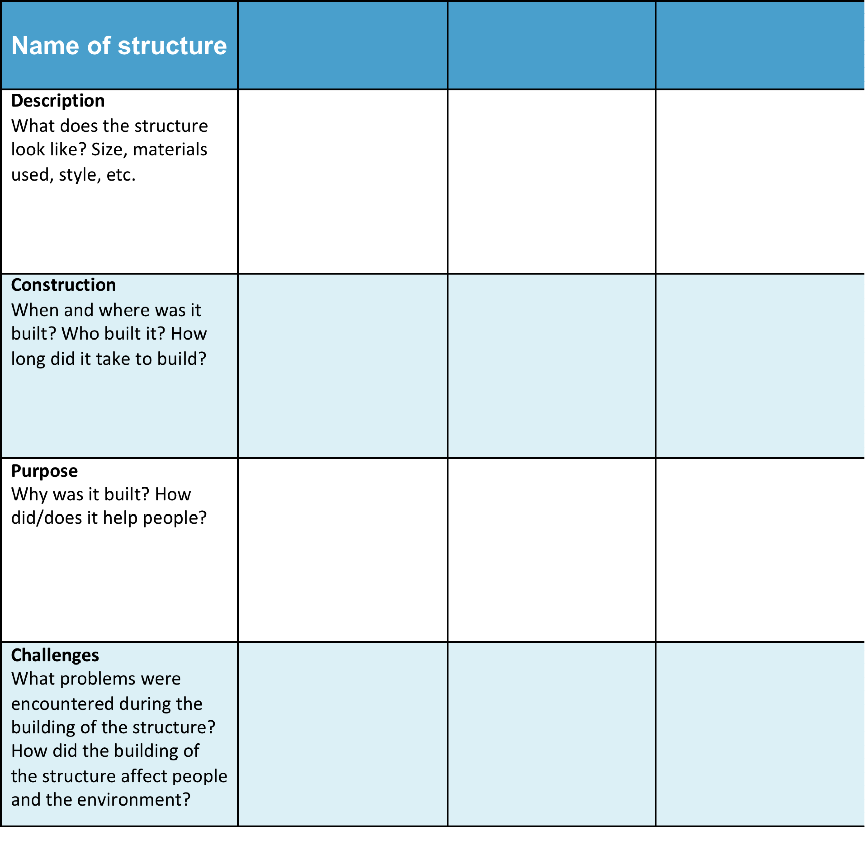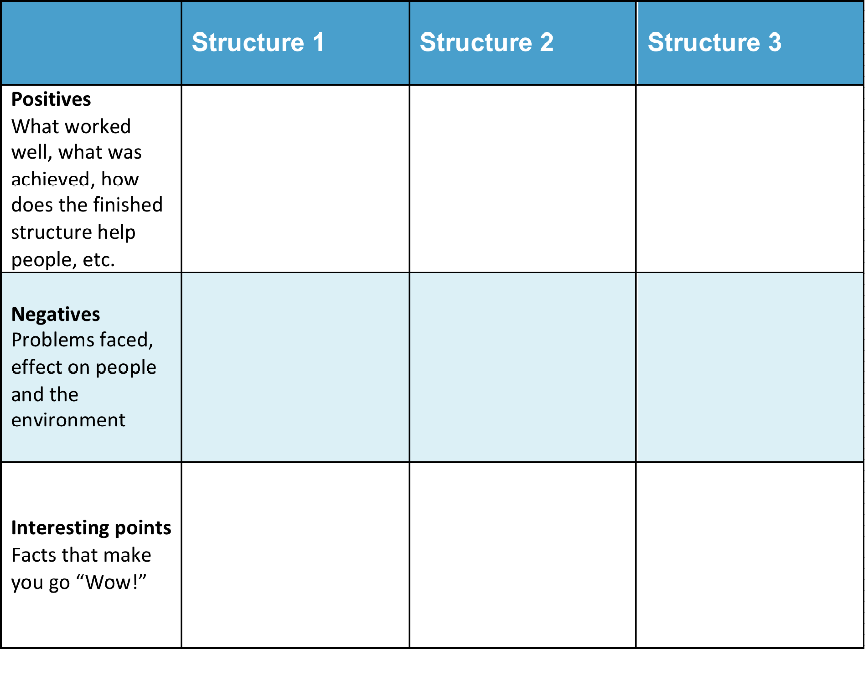Information for Teachers
Curriculum links
Australian Science Standards
CS (ACSSU074) Uses of materials based on their properties
ESS (ACSSU075) Earth’s surface changes over time as a result of natural process and human activity
ESS (ACSSU075) Effects of flood and extreme weather on the landscape
UIS (ACSHE062) Science knowledge helps people to understand the effect of their actions
New Zealand Science Achievement Objectives
NTTK: Materials are selected based on desired performance criteria
PW: The properties of different groups of substances are linked to the way they are used in society or occur in nature
Helpful websites
You may want to direct your students to some or all of these websites to help with their investigations.
https://science.howstuffworks.com/engineering/structural/10-amazing-bridges1.htm
https://easyscienceforkids.com/all-about-bridges/
http://www.sciencekids.co.nz/sciencefacts/engineering/dams.html
https://kids.britannica.com/kids/article/canal/352905#intro
Students can find out about amazing structures by using search words, e.g. building+amazing+structures+bridges (canals, dams) and about specific projects using searches like this: The+building+of+the+golden+gate+bridge
How to search the internet
1 Keep your request short
Fewer words will give a more accurate search.
2 Choose exactly what you want
For example: Arctic Circle Climate
3 Use quotes
Double quotes around a set of words tell the search engine to consider those exact words in that exact order without any change. For example: “Arctic Circle Climate”
4 Use the plus sign (+)
If you add a plus sign (+) between words, the internet will search for all the words. For example: migrate+birds+whales+mammal
5 Use the minus sign (–) to say what you don’t want
Use a minus sign (–) to show words you do not want to appear in your results. For example: if you search for burrowing animals and do not want mammals in your search, –mammals will exclude mammals. Note that you need to put a space before the minus sign for the word to be excluded.
6 Be very clear about what you don’t want
Part 1
Ask questions and make predictions
After reading Solving Problems: Dams, Bridges and Canals, you are probably amazed at how these structures are built, and you might have many questions about the topic.
List your questions
- Compare your list with questions that others have.
- Choose a question you would like to investigate.
- You can work alone, with a partner, or in a small group.
You may want to choose one or more of these questions to investigate
Q1. What other amazing dams, bridges, and canals have been built?
Q2. How has the construction of these types of structures changed over time?
Q3. What problems have designers and builders had to overcome to create amazing dams, bridges, and canals?
Q4. How does the building of these structures help people? What problems might they cause?
Go to Part 2 Plan and investigate →Part 2
Plan and investigate
Do searches in the internet or in books or talk to people who can help to find the information you are looking for.
Your teacher may suggest suitable websites for further information.
Go to Part 3 Record and analyse data →Part 3
Record and analyse data
Find a way of recording your information that will allow you to see any patterns in the data.
Data Chart for building amazing structures
(Download and change to suit your information)
 Download Chart
Download Chart
Go to Part 4 Evaluate the information →
Part 4
Evaluate the information
1. Look over the information you have gathered and the patterns you have found.
What similarities and differences are there between the structures you investigated?
What worked well during the building of the structure? What was difficult?
2. Search for other patterns.
Do the overall positive outcomes of the finished structures make up for any negative issues faced during construction?
3. Make notes about what you find.
Go to Part 5 Communicate and share ideas →Part 5
Communicate and share ideas
Look over all of the information that you have gathered in your investigation.
What are the most important ideas about building amazing structures such as dams, bridges, and canals?
Make a chart showing the most important ideas.
 Download Chart
Download Chart
← Return to menu
